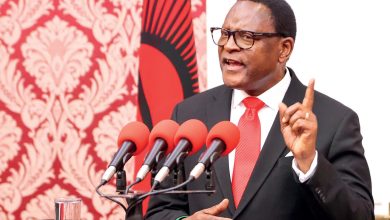We failed IMF again
A few days ago, I was going through Malawi’s ever-growing archive of self-inflicted economic wounds—yes, we have plenty, and one headline caught my eye: ‘Malawi’s ECF programme with IMF falls off’.
This referred to the $175 million (over K300 billion) Extended Credit Facility (ECF) agreement between Malawi and the IMF—an economic lifeline meant to anchor our national budget, shore up forex reserves and serve as a stamp of credibility to reassure other donors. It died just 18 months in, leaving Malawi’s economic credibility echoing with doubt.
But let’s not feign surprise. Malawi has mastered the art of dropping trousers in public and blaming the wind. This is not our first IMF tango ending in tears. We are serial economic lawbreakers.
A few years ago, we forfeited $70 million (roughly K123 billion) from the IMF—not in pledges, not hypotheticals, but actual funds on the table. This was part of an earlier ECF arrangement meant to cushion us against macroeconomic instability. That 2018 deal gave Malawi access to $145 million (over K254 billion) across three years. We received an initial $112.3 million, followed by a $40 million top-up in late 2019. Then came 2020, and the music stopped.
Why? Allegations of falsified data and dodgy reporting, mismanagement and mystery around how ECF funds were used between 2018 and 2020. By the time the MCP-led Tonse Alliance took over in June 2020, the IMF was already halfway out of the door. The new administration cancelled the program three months later. To be fair, the rot had already set in, and the honeymoon ended quickly for MCP with this cold slap of fiscal reality.
Tonse came in preaching reform, reset and accountability. Yet, the moment they tasted power, they became comfortable, and the leadership folded. In 2023, a new ECF arrived with fanfare. This time, we claimed we had matured and made promises we couldn’t keep.
But the IMF wasn’t returning blindly. It came with hard questions and forensic scrutiny. Moreover, what did we do once the spotlight dimmed? Back to the old playbook: overspending, underperformance and scapegoating—blaming Covid-19, climate shocks, the Russia-Ukraine war and previous administrations.
And with an election looming in September 2025, the government probably did not want to swallow the IMF’s bitter pills—cutting subsidies, controlling inflation, reining in spending. Certainly, these things don’t play well on the campaign trail. So, the ECF was put on ice. The ruling MCP would rather face a broke country than an angry electorate. But guess what? The people are suffering anyway. Commodity prices are shooting through the roof. Maize is expensive, fuel is scarce and forex is a ghost. In townships and villages, people are suffering and sleeping on empty bellies while politicians are busy rehearsing their campaign moves. Real cowardice wrapped in campaign regalia.
But here’s the paradox: even if the opposition wins next year, they’ll inherit the same IMF obstacle. They will have to negotiate from a position of economic fragility, with credibility deficits and empty coffers. And no donor will pour water into a leaking bucket.
So, let’s fix the bucket, seal the corruption holes, reduce waste, tame our appetite for reckless spending and stop running to China and the Middle East for bailouts with strings we can’t afford.
We must also depoliticise reforms. Whether it is MCP, UDF, DPP, People’s Party, Aford, UTM, or any other party, reforms must be consistent, because the economy doesn’t care about campaign colours.
Finally, politicians must learn to respect Malawians enough to tell them the truth. Reforms are painful. But the cost of delay is worse: chronic poverty, donor fatigue and the slow death of credibility. If our leaders cannot stomach that, then maybe the next suspensions should not come from the IMF. Maybe they should come from the ballot box.




